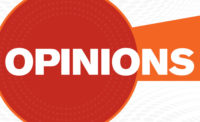Cash has officially been dethroned as a popular payment option in the HVAC industry. Credit card payments have slowly been increasing in the U.S., according to the Federal Reserve Payments Study 2017 Annual Supplement. Per the report, total card payments grew from 103.5 billion, with a value of $5.65 trillion in 2015, to 111.1 billion, with a value of $5.98 trillion in 2016. Total card payments increased at an annual rate of 7.4 percent by number and 5.8 percent by value from 2015 to 2016.
In fact, credit card payments registered the highest growth rate by number — 10.2 percent — among the core payment types during the same period, up from a growth rate of 8.1 percent from 2012 to 2015. Additionally, the global mobile payment revenue in 2015 was $450 billion and is expected to surpass $1 trillion in 2019, per Statista.
These trends are being reflected in the types of payments HVAC contractors are seeing from their customers. The NEWS conducted a poll, detailing how contractors collect payments — 39 percent of respondents said check; 34 percent said credit; 17 percent said mobile services like PayPal or Venmo; and 10 percent said cash.
CASH, CHECK, CREDIT
For Kettering, Ohio-based McAfee Heating & Air Conditioning, payment is due at the time of service. The company currently accepts cash, check, and credit card, and it offers three types of financing for bigger-ticket installations.
“It’s important we have flexible options when we visit a customer’s home,” said Candice Salley, accounting manager at the company. “We have mobile card readers, so we can collect credit card payments right then and there.”
Additionally, Greg McAfee, president and owner, said he has been looking into adding mobile payment options for customers.
“We’ve been talking a lot about disruption these past few weeks — about being a disruption in our industry in a positive way,” he said. “In order to be a disruption, you constantly have to come up with better ideas and better things no one else is doing, and one of those is being able to collect mobile payments. So we’re looking into Apple Pay, Mobile Wallets, and stuff like that. As we service more and more of a younger generation, we need to have easy ways to pay — not just what has worked for the past 20 years.”
According to McAfee, cash is the rarest form of payment he receives, but it really depends on the age of the person.
“I think we serve five generations today,” he noted. “If we’re talking about the Greatest Generation, they’re going to write a check; some of them may even pay cash. The baby boomers are mostly credit cards, maybe some checks. The younger generation are going to be credit cards.”
McAfee actually prefers customers to pay via check, since cash is almost a problem in today’s world.
“If we get cash on the weekend and our accounting department is closed, then I have to come into the office to put it in the safe, because where do you put cash?” he explained. “Especially if someone pays $8,000 in cash; it’s a good problem to have, but checks are so easy. We do a mobile scan of all the checks that come in daily. We’re only going to the bank for cash and specialty items, and it’s very rare.”
McAfee noted that collecting payments at the time of service has allowed his company to grow and be successful financially.
“From a company standpoint, we’re extremely strong financially, and one of the reasons why is because we get paid upon completion,” he said. “There is no waiting weeks to get paid. Some companies are slow billing, then they’re waiting weeks, if not months, to get paid. That never happens here. We want to make it easy for the customer, but we also want to be profitable to stay in business and have healthy cash flow.”
Magic Touch Mechanical Inc., located in Mesa, Arizona, accepts all major credit cards, personal and business checks, and cash, and the company offers multiple financing options for any purchase over $250, according to its president, Rich Morgan.
“These are all very typical payment methods, and we want to make things as easy as possible for our clients,” Morgan said. “Additionally, we have recently begun a discussion internally as mobile payment methods grow in popularity. We have not received much in the way of requests for alternative payment options but feel it will eventually become more common.”
Morgan said the type of payments he receives varies depending on the person and the amount of the transaction. The most common payment method is check, followed by credit card, financing, and finally, cash, he noted.
“The least costly payment method for us is a personal check,” Morgan said. “Obviously there is a cost to the company for both credit card and financing transactions. With regards to cash, it creates a hassle, as it requires a physical trip to the bank to deposit it. Especially with larger amounts, many technicians prefer to come drop the cash off, as they are eager to not be responsible for it, which is understandable, but it can also throw off the day’s schedule. Our bank does not require the physical check any longer. To deposit a personal check, we simply scan it directly into our account dashboard, and it is funded immediately.”
Thornton & Grooms in Farmington Hills, Michigan, also offers these same payment options.
“We offer consumer financing as a tool to help our customer buy what they want and to ease the burden of an emergency larger-cost purchase being thousands to tens of thousands, such as with furnace and air conditioning systems,” said Matt Bergstrom, owner and president, Thornton & Grooms.
Bergstrom added that while his company has looked into mobile payment options, he has found that his existing systems have these types of offerings as well.
“We are on ServiceTitan, and they allow for check capture in the field,” he said. “A photo is taken and automatically deposited in the bank — no more lost checks — and it does the same with credit cards. It allows for faster deposits of funds and increased security of the consumers’ bank and credit card information.”
Bergstrom noted that cash, check, or debit cards cost the least for the company because the processing fees are low or non-existent.
BAD PAYMENTS
Most businesses have dealt with forms of declined payments, whether they be check or credit card. Luckily, these don’t seem to happen often for HVAC contractors.
“We have very little bad debt each year because we have written policies which help us to avoid it and act fast when there is an issue,” Morgan said. “With regard to bad checks, we have $0 in uncollected checks annually. We are lucky to live in Arizona, where the state attorney general has zero tolerance for bad check writers. If we have trouble collecting, it’s a simple matter of submitting a form, and they handle all the enforcement — usually pretty quickly, I might add. We collect credit card payment right in the field on a tablet. If if a credit card is declined, we ask for another form of payment then and there.”
Bad payments are going to happen occasionally, and there are a small percentage of people who look to game the system, Bergstrom noted.
“We try to recognize those people up front, but we miss it at times,” he said. “We add 1 percent to all pricing for every fraud recovery, similar to the retail world. It’s going to happen, and you can’t catch it all.”
On the rare occasion a bad payment does come back, McAfee Heating & Air Conditioning tries to work with its customers.
“When we do get a check that comes back as insufficient funds or it’s written out of a closed account, we give them a phone call,” Salley said. “We do very soft collections to try and work with them. They may say, ‘I’m very sorry, something came out of my account. Could you redeposit it on Friday when I get paid?’ And we tell them no problem. Most of those we’re able to collect on. Declined credit cards are usually a result of … a card that has expired or the bank has issued them a new card, so we just give them a phone call to update that information. Our goal is to make it easy for the customer to do business with us.”
Publication date: 8/27/2018
Want more HVAC industry news and information? Join The NEWS on Facebook, Twitter, and LinkedIn today!








